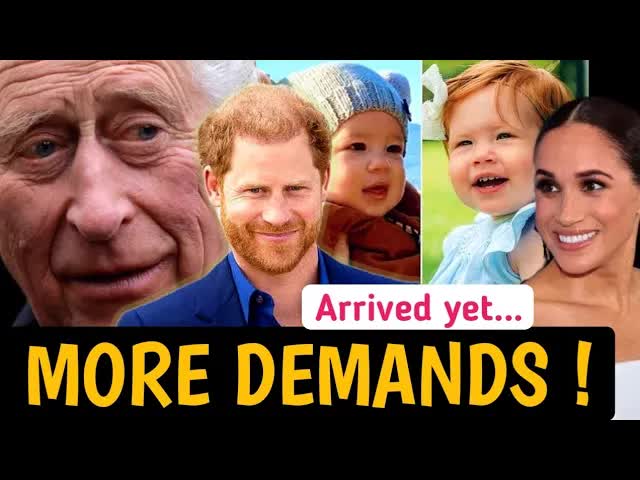In a surprising turn of events, Prince Harry has made his way back to the UK, prompting intense media scrutiny and public interest.
Following King Charles‘s recent cancer diagnosis, the headlines have been dominated by Harry’s name, overshadowing that of his brother, Prince William.
This shift in focus raises questions about the dynamics within the royal family and the role the media plays in shaping public perception.
Reports indicate that King Charles personally broke the news of his health condition to his immediate family, including both sons and his siblings—Princess Anne, Prince Andrew, and Prince Edward—before Buckingham Palace made an official announcement.
Sources close to Prince William suggest that he remains in regular contact with their father during this challenging time.
Meanwhile, Prince Harry’s arrival in the UK has been met with significant fanfare, as a convoy awaited him at Windsor, ready to whisk him away from the airport.
The media frenzy surrounding Harry’s visit is hard to ignore.
Cameras and reporters have been trailing his every move, almost as if they were anticipating the return of a future king.
It’s fascinating how someone once deemed “irrelevant” is now the center of attention, with live updates broadcasting his journey from Los Angeles to London.
The contrast with the media’s treatment of Prince William is stark; one would think Harry was the heir apparent given the coverage he receives.
While some might argue that this obsession with Harry is unjustified, it highlights a deeper narrative within the royal family.
Despite past grievances, Harry’s decision to visit his ailing father signifies a desire to maintain familial bonds.
This gesture reflects a complex relationship, where personal history collides with the current need for compassion.
However, it’s essential to recognize that Harry’s visit doesn’t imply a reconciliation of past issues.
He has made it clear that he will not resume his duties as a working royal.
The memories of being evicted from his home and stripped of security linger, casting shadows on any potential healing.
Many observers remember how King Charles prioritized Camilla over his own sons, an action that has left a lasting impact on Harry.
As Harry navigates this complicated terrain, the media continues to voice its discontent over his decision not to bring his children along.
Critics have lamented the separation of grandchildren from their grandfather, questioning why Archie and Lilibet weren’t included in this family reunion.
However, it’s crucial to consider the context of these sentiments.
The narrative surrounding King Charles’s love for his grandchildren seems contradictory.
His past actions, such as denying security and missing significant family milestones like Lilibet’s christening, paint a different picture.
The insistence that there are no valid reasons for Harry to keep his children away feels disingenuous when considering the history of media harassment faced by the family.
Moreover, the idea that Harry should overlook these past grievances for the sake of a visit is problematic.
It’s naive to expect him to expose his children to an environment where they could be subjected to the same scrutiny and hostility he has faced.
The safety and well-being of his family remain a priority, and understandably so.
The conversation around Harry’s visit also opens up questions about the broader royal family dynamics.
While some may view Harry’s actions as neglectful, others see them as a protective measure against a media landscape that has historically targeted him and his loved ones.
The narrative that paints him as irresponsible for not bringing his children along is missing the bigger picture.
As the dust settles on this latest chapter in royal affairs, it’s clear that Harry’s visit is more than just a family reunion.
It’s a moment fraught with history, emotion, and the complexities of familial love amidst public scrutiny.
The royal family’s story is far from simple, and this visit is a reminder of the delicate balance between duty, love, and self-preservation.
In the end, whether the media chooses to celebrate or criticize Harry’s choices, one thing remains certain: he has shown a willingness to support his father during a difficult time, even if it means navigating a minefield of past grievances and public opinion.
As we watch this unfolding drama, it’s a poignant reminder of the intricate tapestry that is the royal family.










